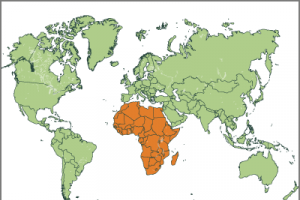Africa (general)
Other information
30 August 2012
Members of farmers’ organizations, women’s movements and civil society organizations from South Africa, Zimbabwe, Malawi, Swaziland, Lesotho, the DRC and Mozambique gathered on August 15-16 in Maputo, Mozambique, to analyze the multi-dimensional global crisis and the response of African governments.
Bulletin articles
30 November 2011
Next week an international farmers' conference will take place in Mali to stop land grabbing. Organized by La Via Campesina, it is aimed at opening a space to listen to and learn from local peasants, mainly from African countries, on what they have to say about land grabbing and to unite forces to resist the process and build future strategies.
Other information
16 June 2011
Only available in Spanish -
By Guadalupe Rodríguez, Salva la Selva.
Bulletin articles
29 September 2010
The history of the last 500 years on the African continent is a history of the plunder of its resources and the violent exploitation of its peoples by foreign powers (particularly European) who accumulated wealth at the cost of the suffering (and death) of millions of Africans and the destruction of their resources.
Bulletin articles
20 August 2010
Africa is fast becoming the Promised Land for emerging powers –as in the cases of Brazil, China and India- trying to outcompete the old colonial powers in the scramble for the riches of this continent. At the same time other comparatively less powerful countries –such as Saudi Arabia, Qatar, Kuwait, South Korea, Finland and others- are grabbing whatever they can –farmland, forests, carbon markets, cheap labour- in the spaces left unoccupied by the former.
Bulletin articles
29 June 2010
Every four years millions of people throughout the world suddenly become football fans. Many of us know that the organizer –FIFA- is a huge and corrupt money-making machine. We also know that football is big business for a large number of highly destructive transnational corporations. We even know that football players are in many cases no more than modern gladiators sold as human commodities in the FIFA market.
Bulletin articles
27 February 2010
Africa is richly endowed with mangroves, which cover over 3.2 million hectares, extending from Mauritania to Angola on the Atlantic coast and from Somalia to South Africa along the Indian Ocean.
Other information
29 November 2009
Some jugglers of the climate circus are tossing up charcoal to catch it again but now with a fancy name. The proposal of turning residues into fine-grained charcoal and ploughing billions of tonnes of it into the soil every year convert charcoal into “biochar”.
Bulletin articles
30 July 2009
Mangroves are “an original habitat and a specific environment” consisting of trees with aerial roots that bury themselves in the mud but also of other shrubs and tree-like bushes that are distinguished by their ability to adapt to the environment and particularly to water salinity. This explains the specific location of each species within the ecosystem, known as zonation.
Bulletin articles
30 March 2009
Vast areas of land where diverse and rich ecosystems predominate are being replaced with large scale tree plantations in the South. These plantations –whether eucalyptus, pines, rubber, oil palm or other- are resulting in serious impacts on local communities, who see their ecosystems and livelihoods destroyed to make way to industrial tree plantations. Apart from affecting communities as a whole, they result in specific and differentiated impacts on women which translate in their disempowerment.
Publications
18 December 2008
By Chris Lang



